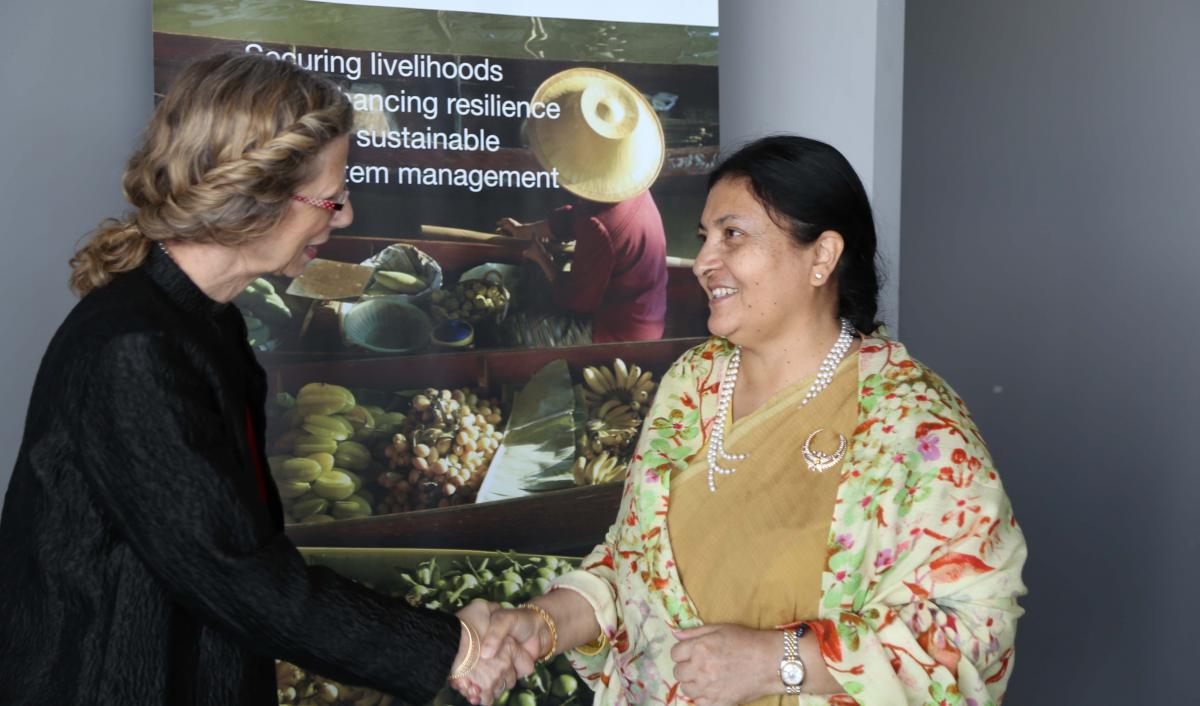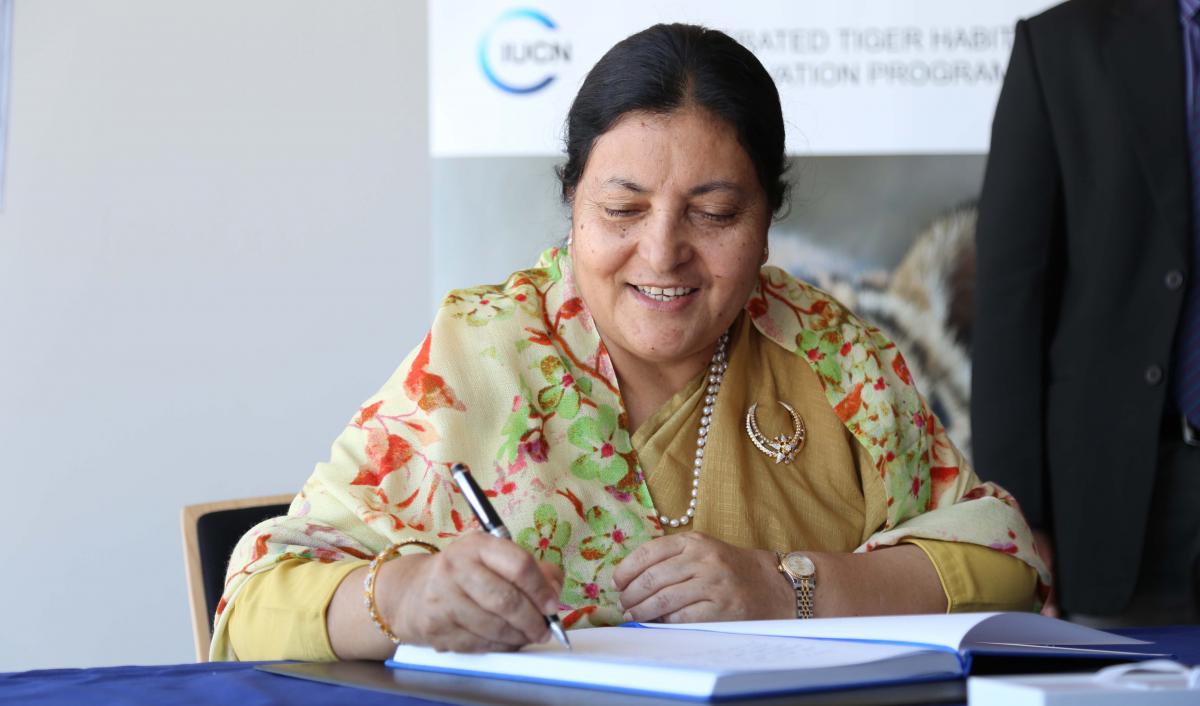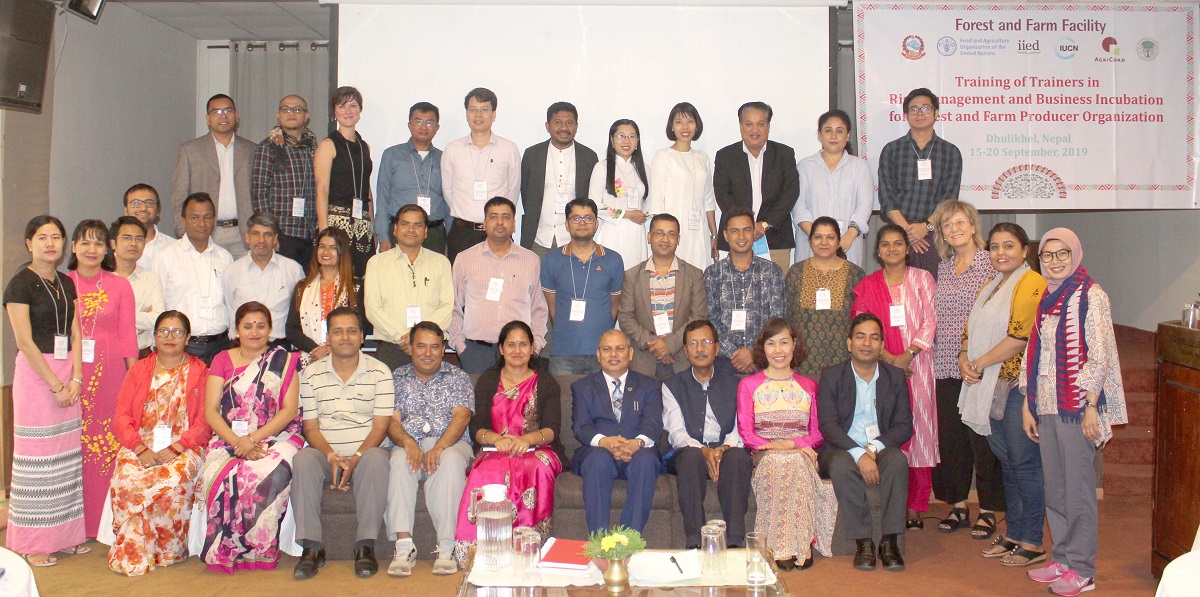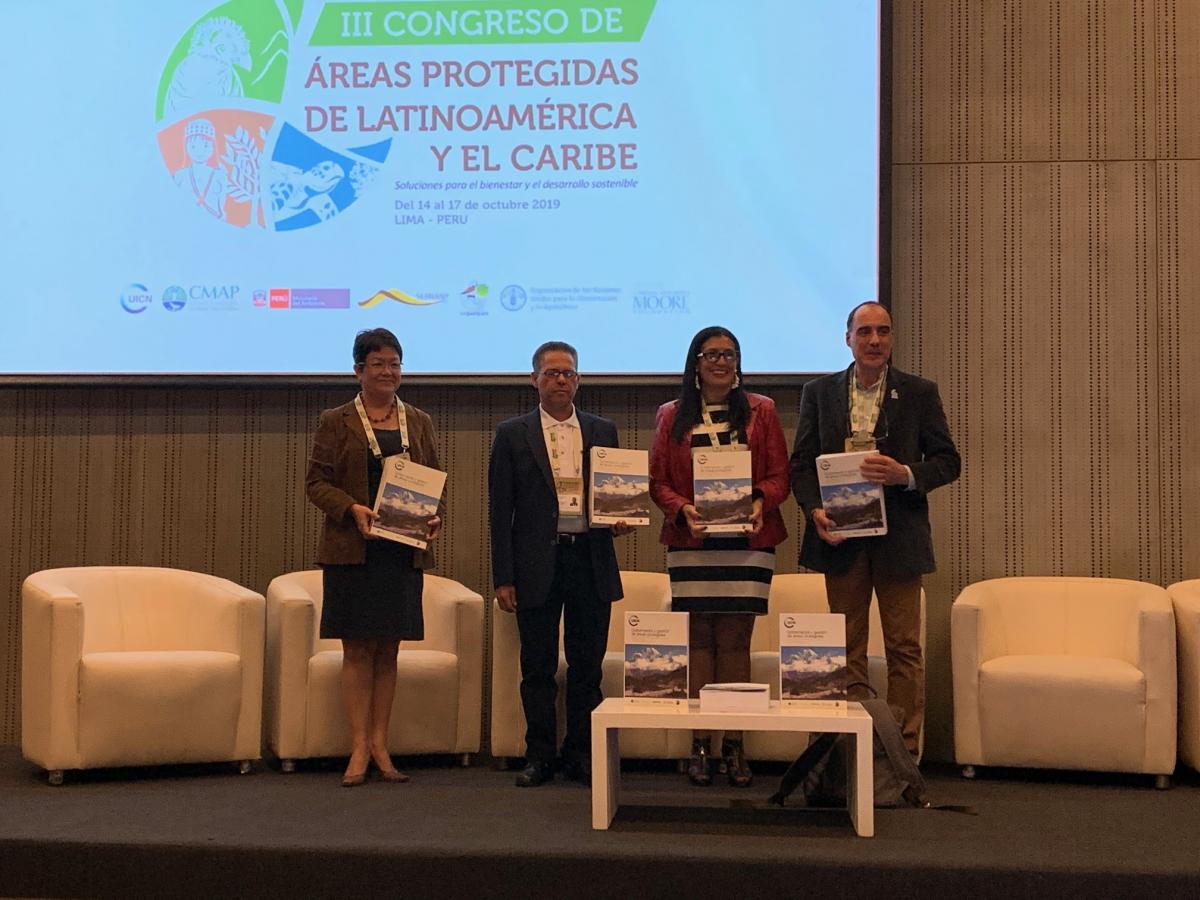President of Nepal visits IUCN to strengthen future collaboration
President of Nepal Bidya Devi Bhandari met with Inger Andersen, Director General of IUCN, International Union for Conservation of Nature, today at the organisation’s headquarters in Gland, Switzerland to discuss opportunities for enhanced collaboration on nature conservation and sustainable development.
An IUCN State Member since 1974, Nepal has collaborated with IUCN on the design and implementation of national policies, strategies and guidelines relating to the environment and development. Most recently, the collaboration has focussed on ecosystem-based adaptation to climate change and disaster risk reduction, access to and equitable use of genetic resources, agroforestry and bioenergy. IUCN was also actively involved in the development of Nepal’s Nature Conservation National Strategic Framework for Sustainable Development.
"It's a pleasure to visit IUCN headquarters and refresh the memories of this organization's contributions to environmental conservation and sustainable development in Nepal," said Her Excellency Right Honourable President of the Federal Democratic Republic of Nepal Bidya Devi Bhandari.
“IUCN is honoured to welcome Her Excellency Ms Bidya Devi Bhandari at its headquarters,” said IUCN Director General Inger Andersen. “Nepal is a true conservation success story. Its efforts to curb poaching and conserve flagship species have led to incredible results and should be seen as a prime example to follow."
Our collaboration over the years has demonstrated that successful nature conservation can go far beyond species, helping local communities adapt to the effects of climate change and achieve sustainable development. We welcome the prospect of our continued collaboration and look forward to replicating the lessons we learn in Nepal in other countries.”
Nepal is home to rich natural resources, diverse ecosystems and globally important species including tigers, snow-leopards and elephants. It also hosts one of the healthiest populations of one-horned rhinos. Its anti-poaching efforts – which involve an active engagement of the military and local communities and the use of cutting-edge technology – have been particularly successful, and have largely eliminated poaching from the country. This enabled Nepal to achieve some of the highest globally-recognised standards in protected area management.
A flagship IUCN-led initiative – the Integrated Tiger Habitat Conservation Programme – aims to conserve wild tiger populations and their habitats, while supporting human populations in key tiger conservation landscapes across Asia, including Nepal.
There are 21 IUCN Members in Nepal representing the country’s government and civil society sector. In 1995, IUCN opened a country office in Kathmandu, in close association with the Nepalese Ministry of Finance.





